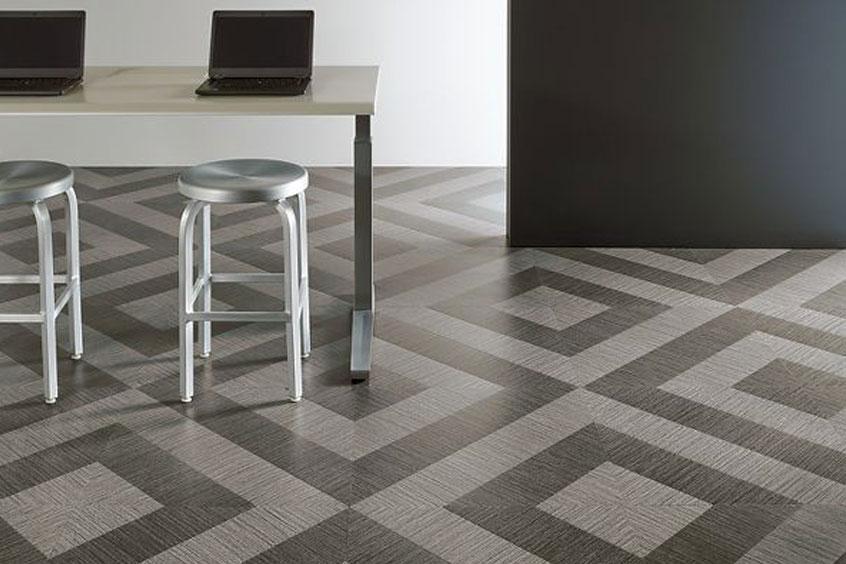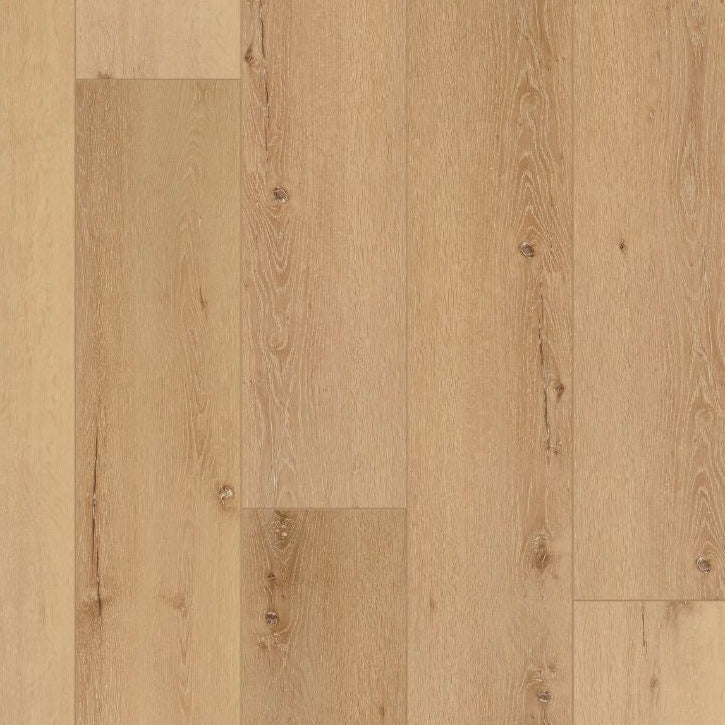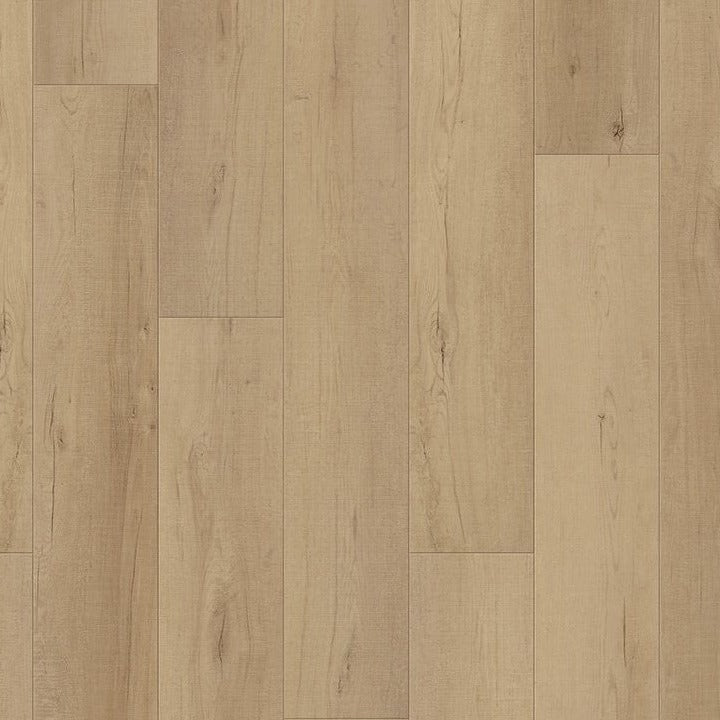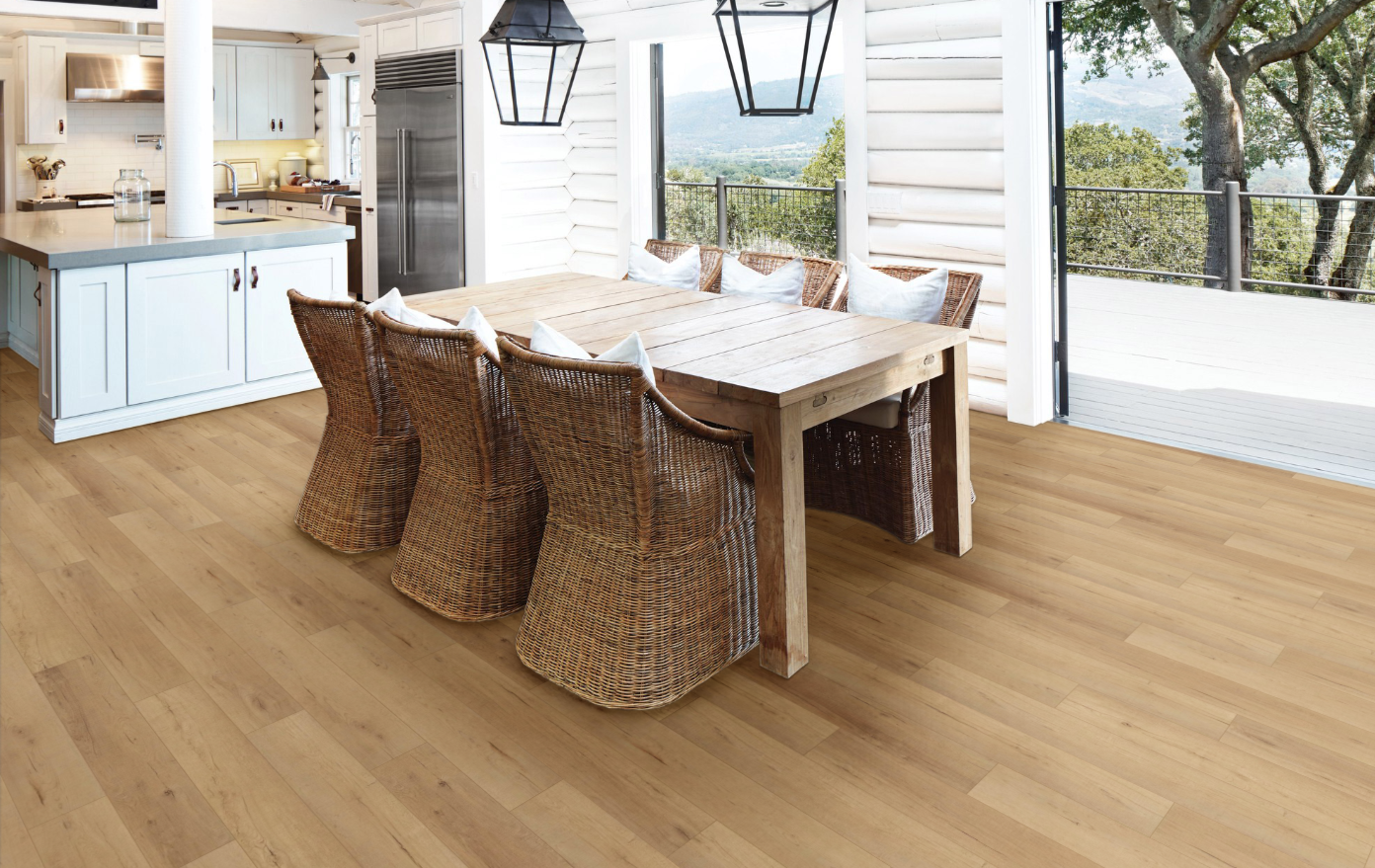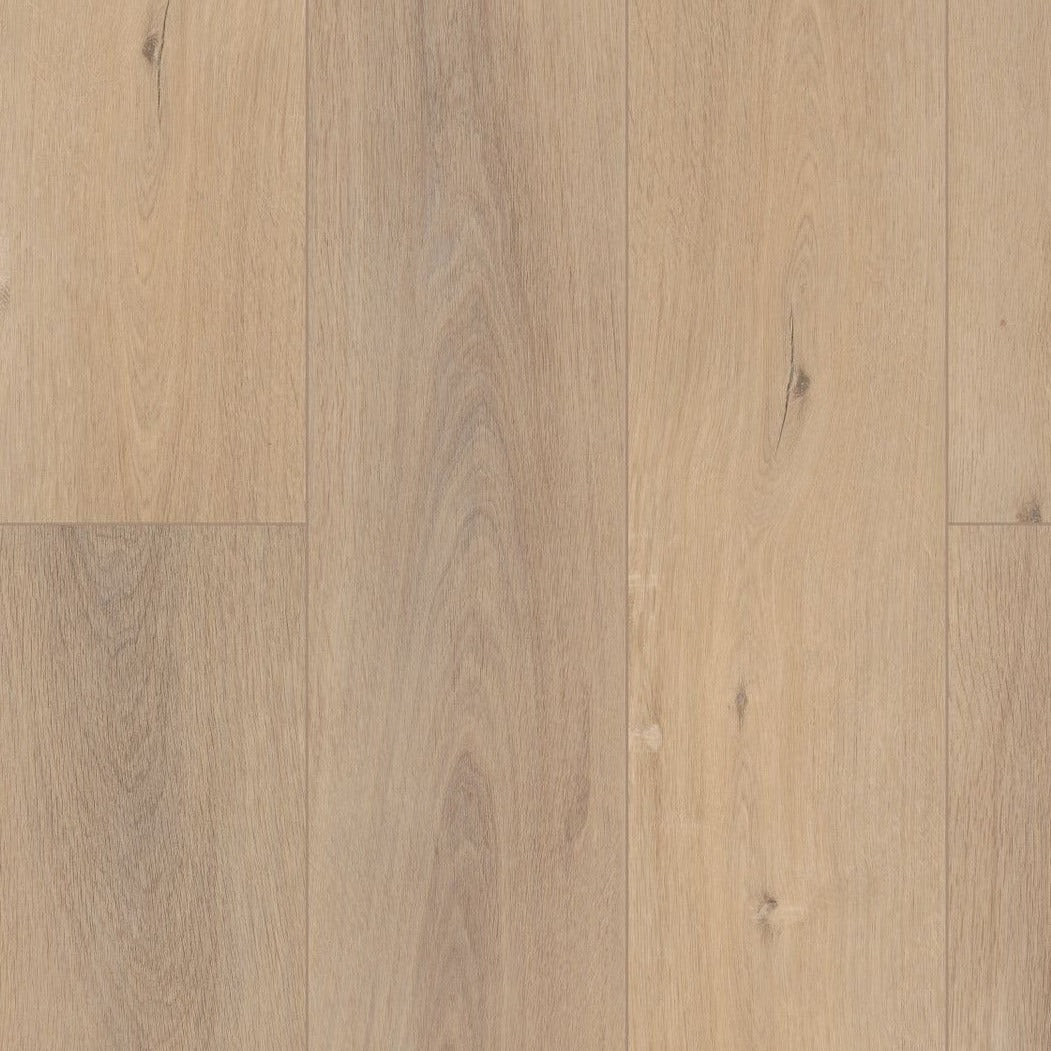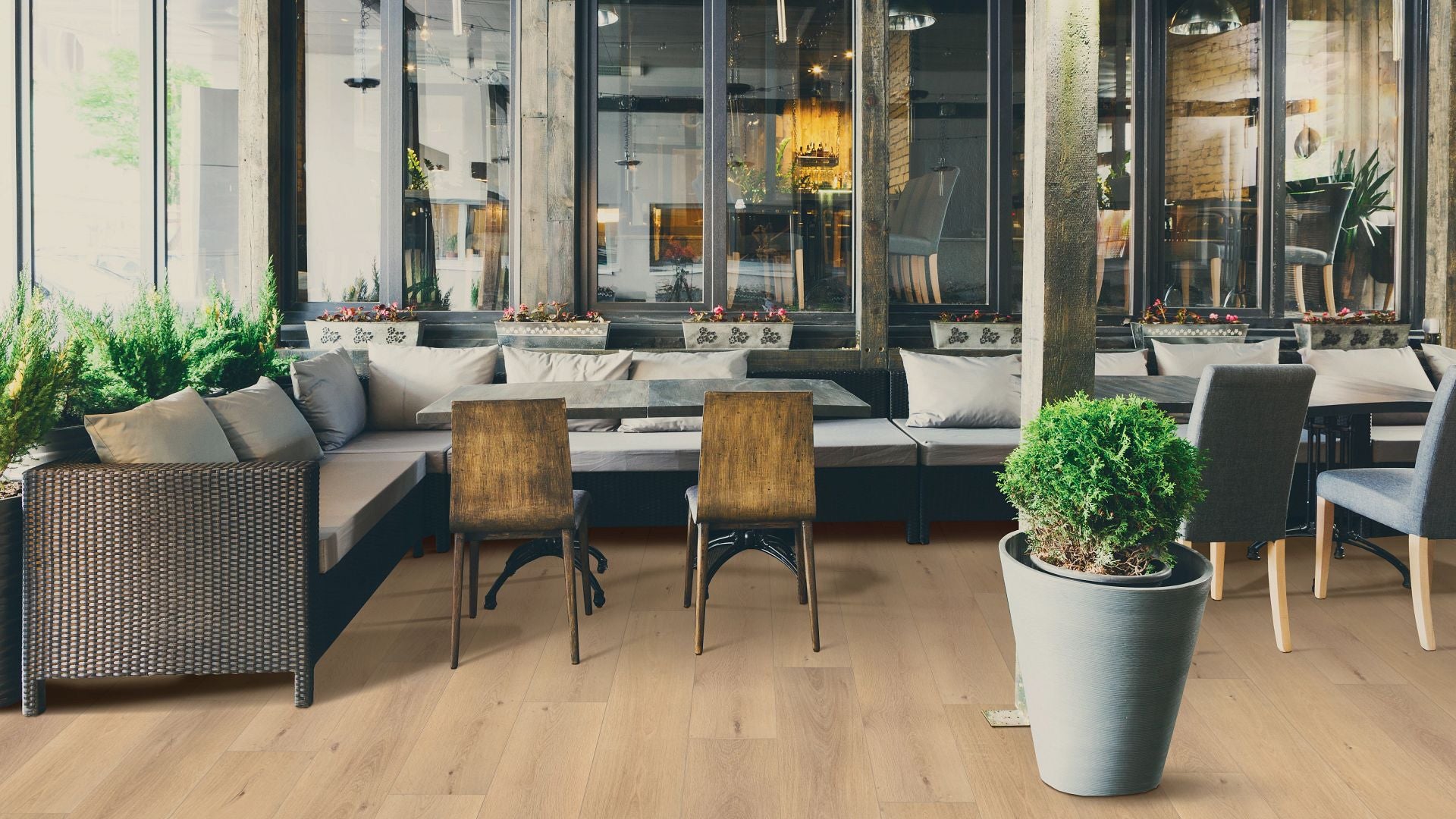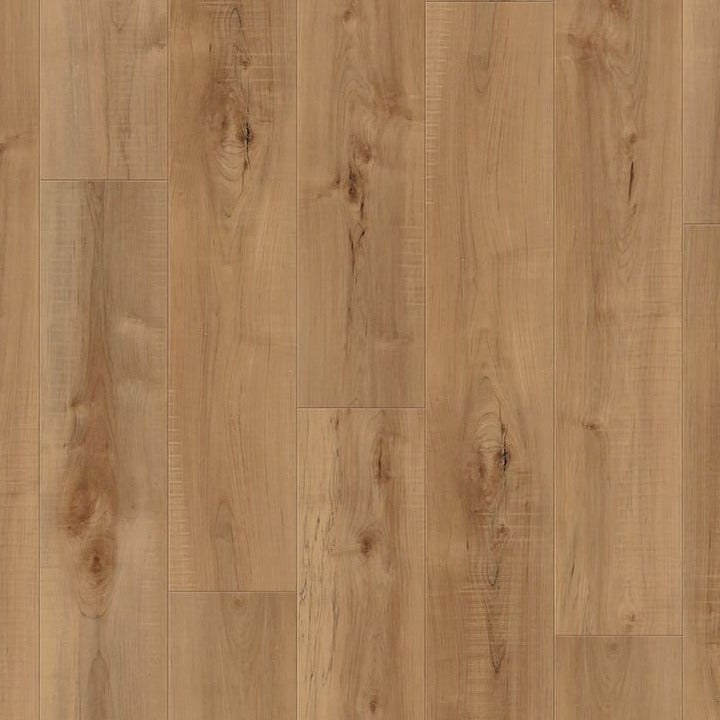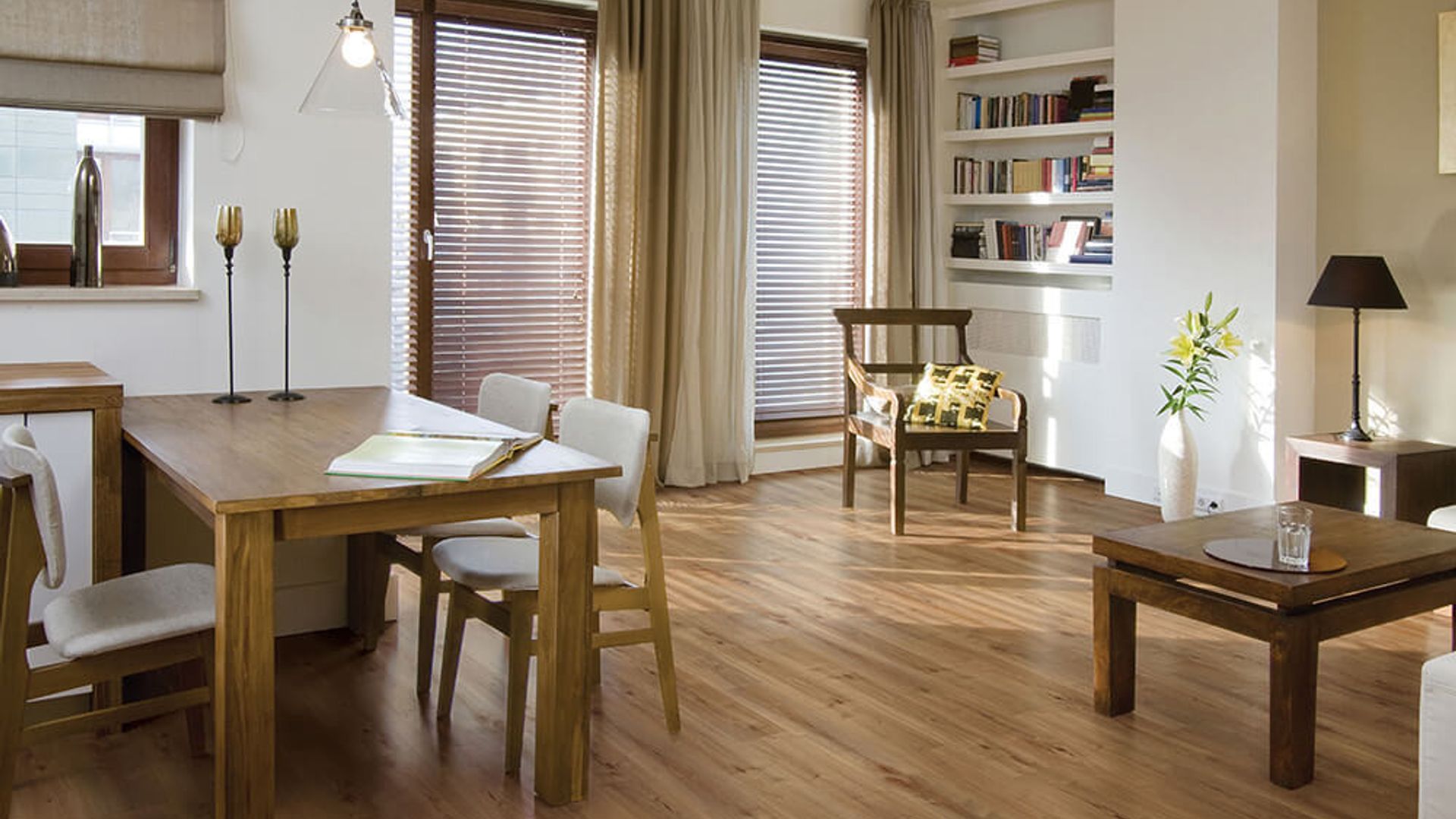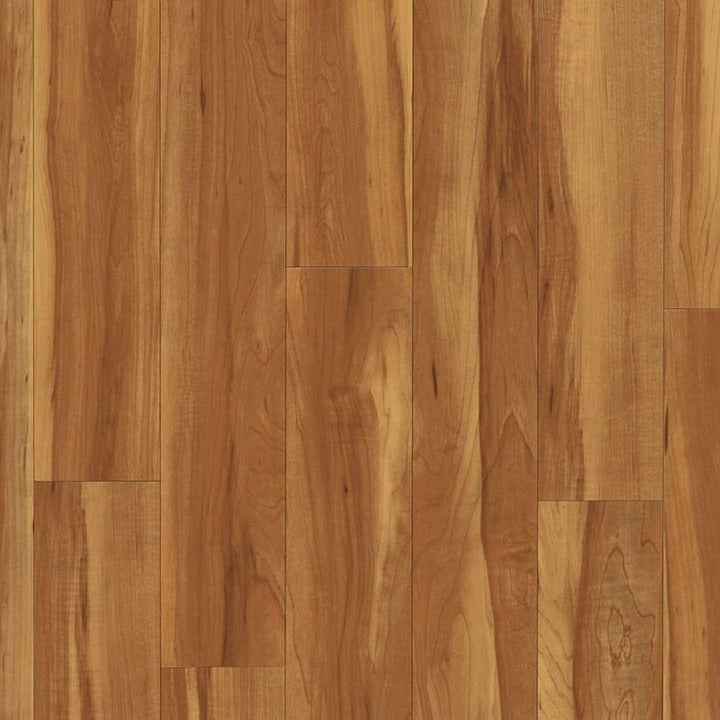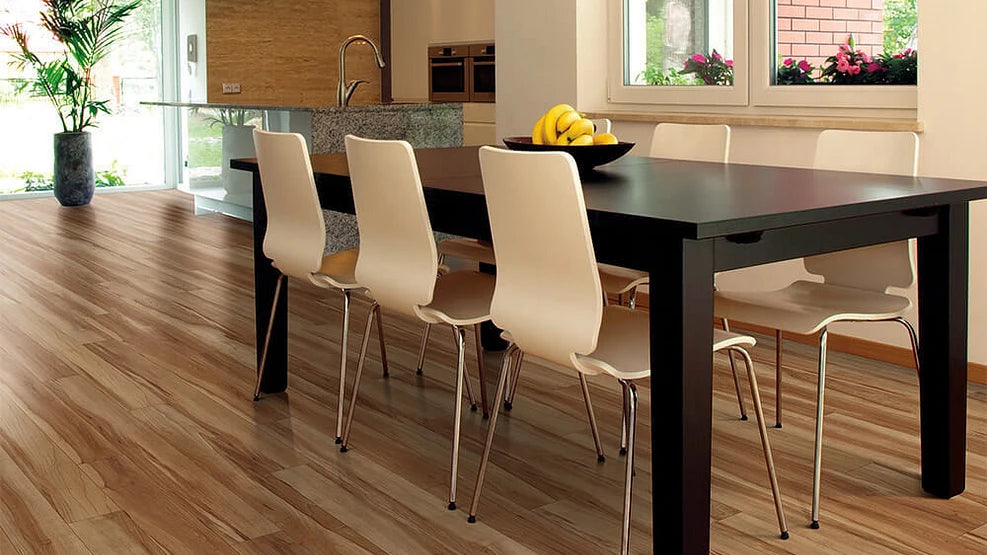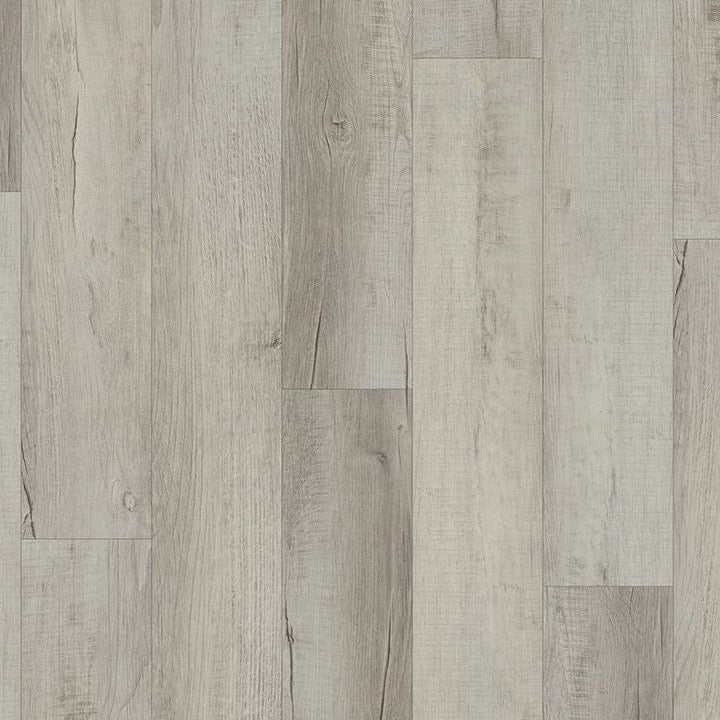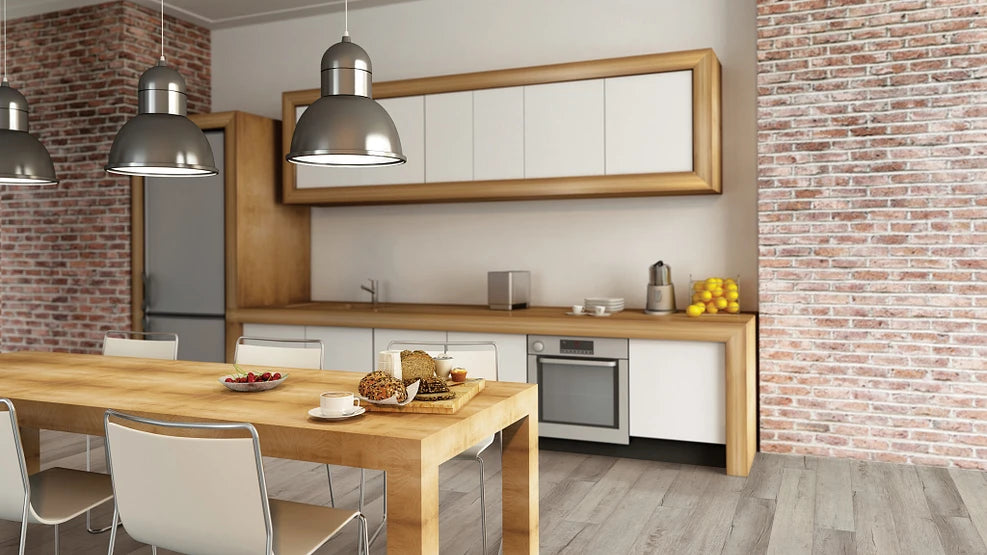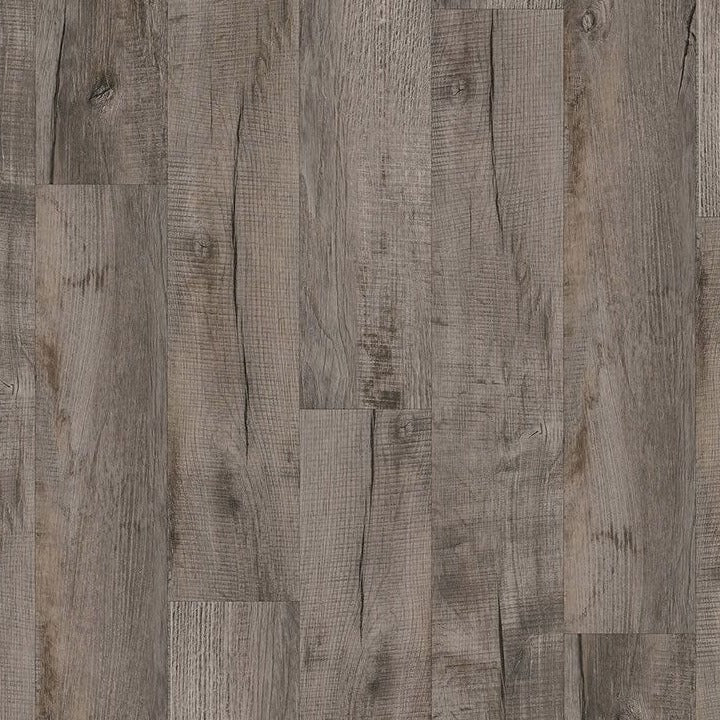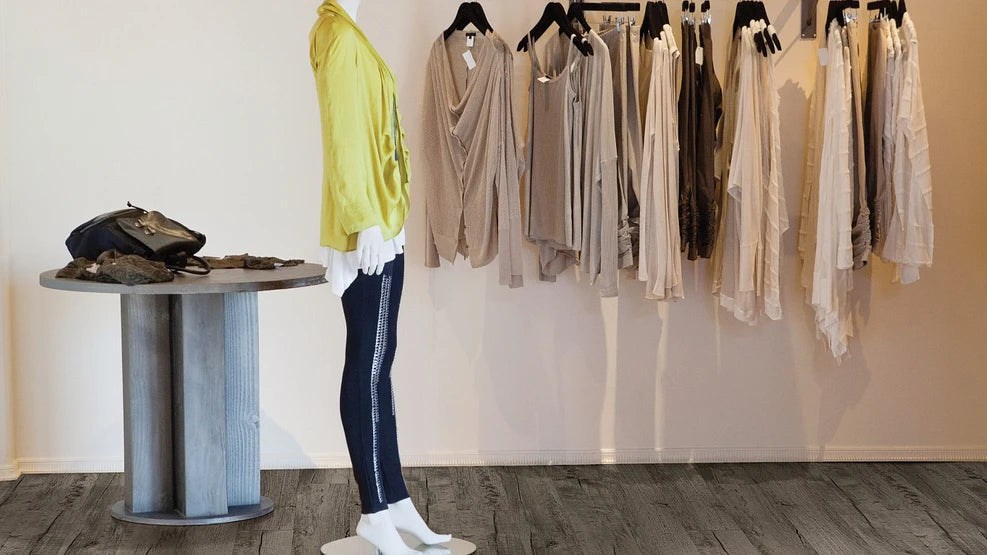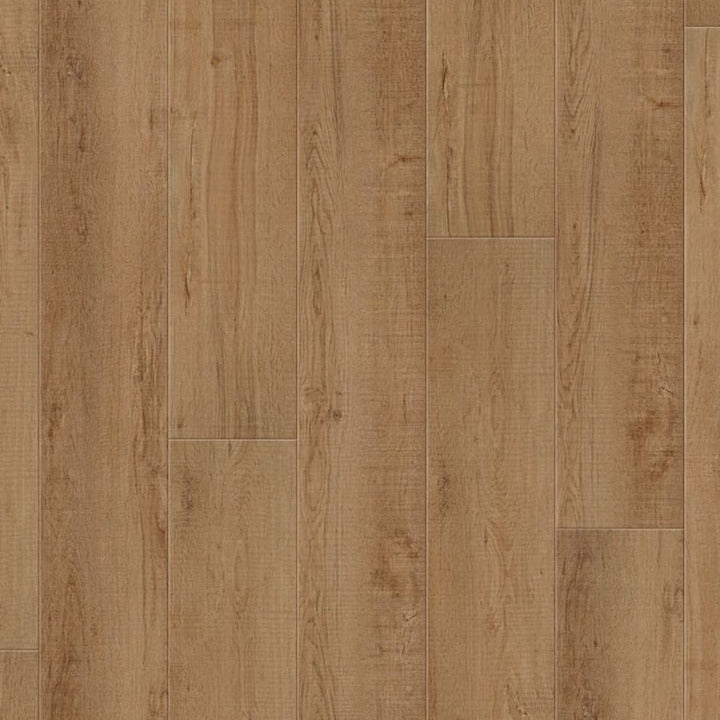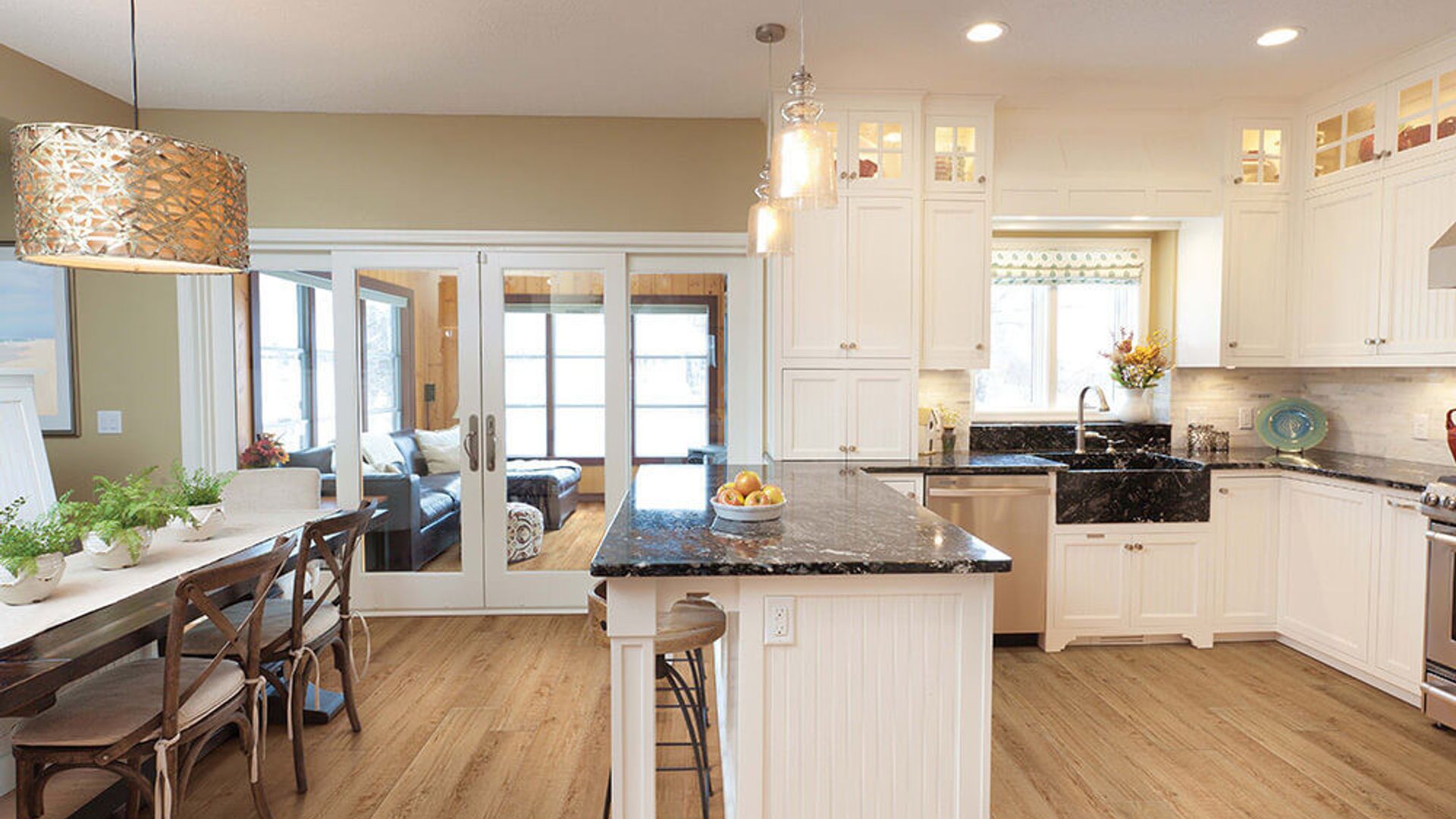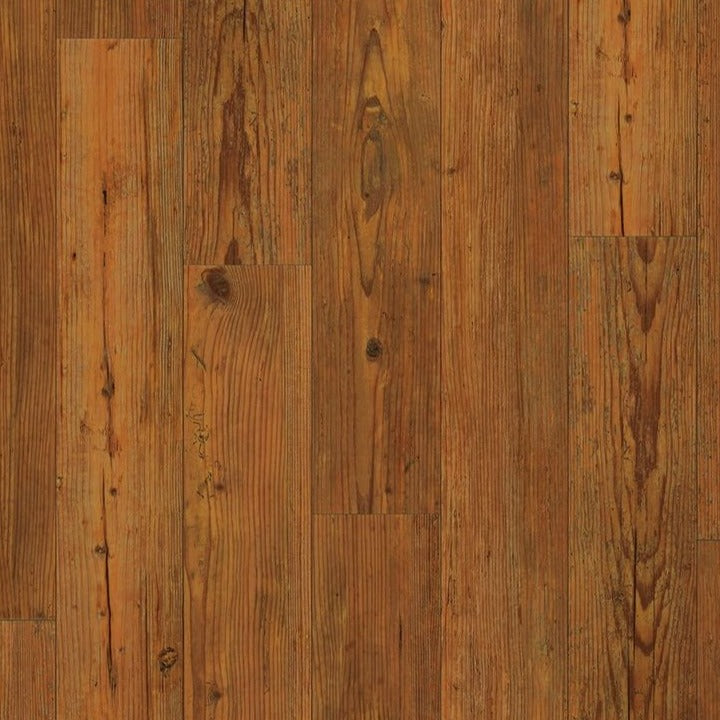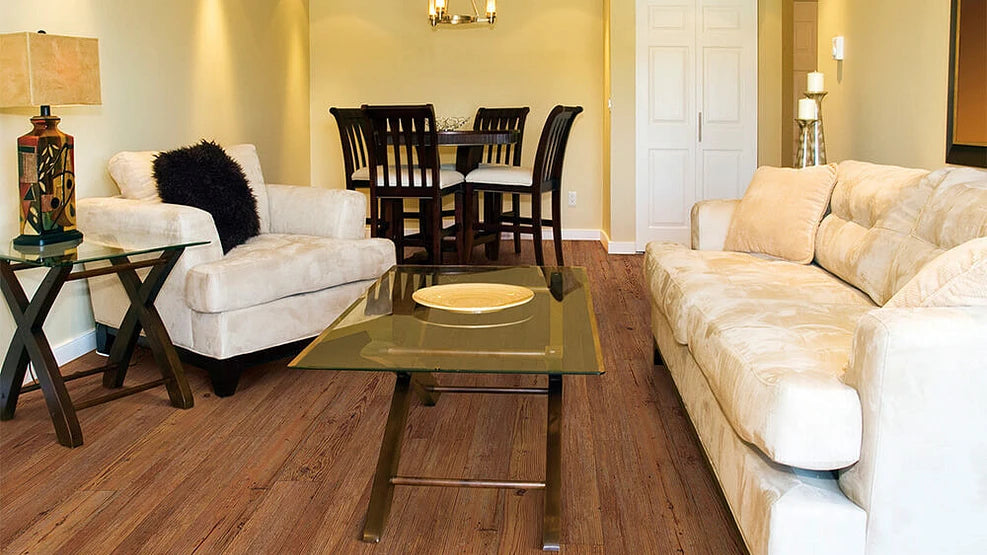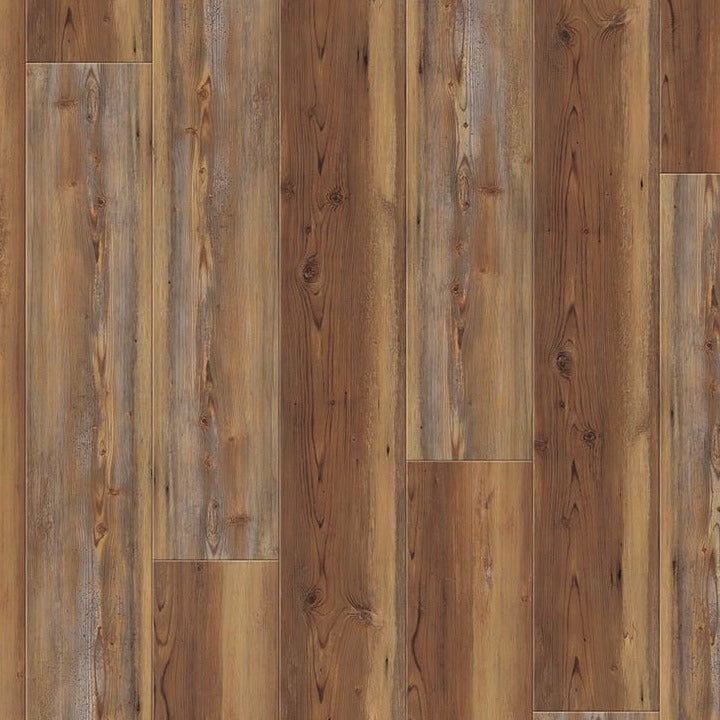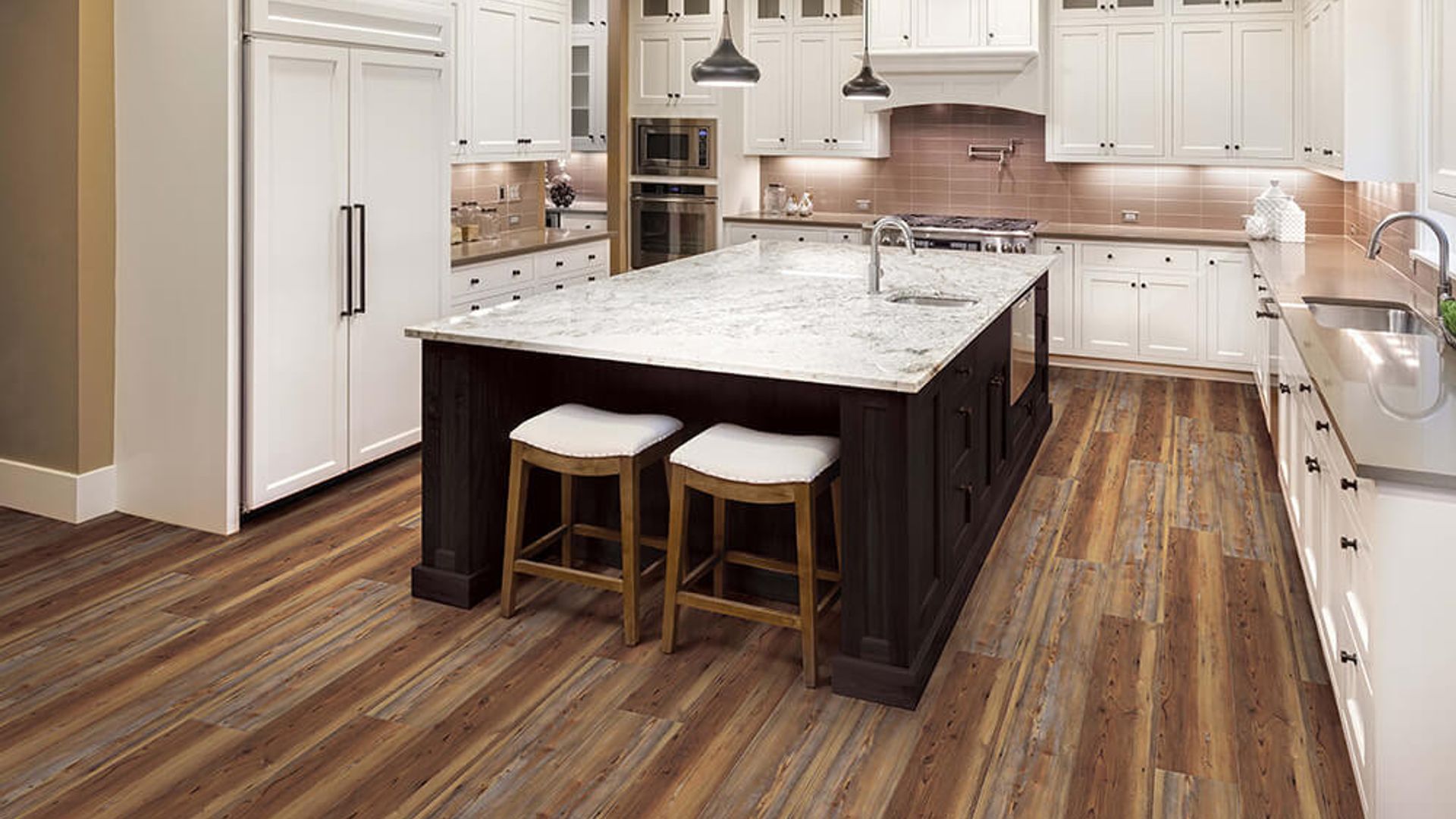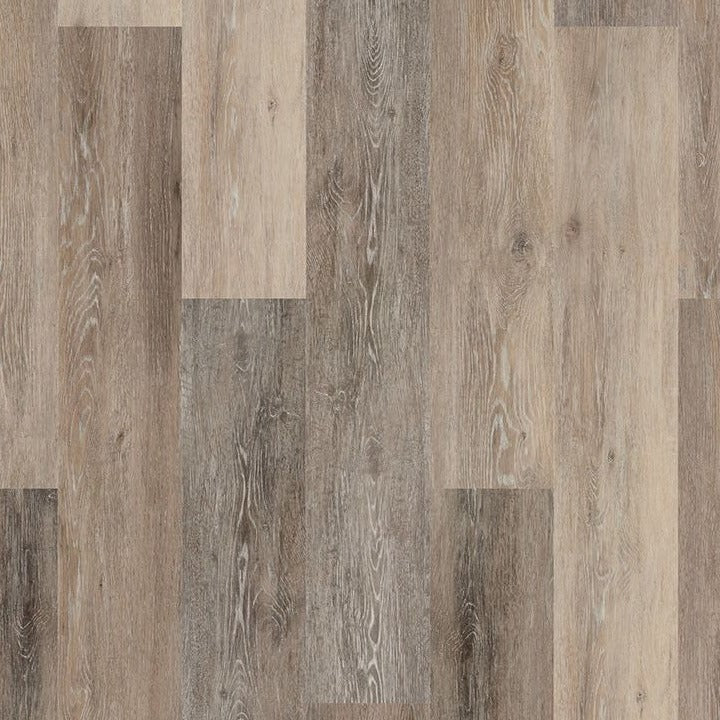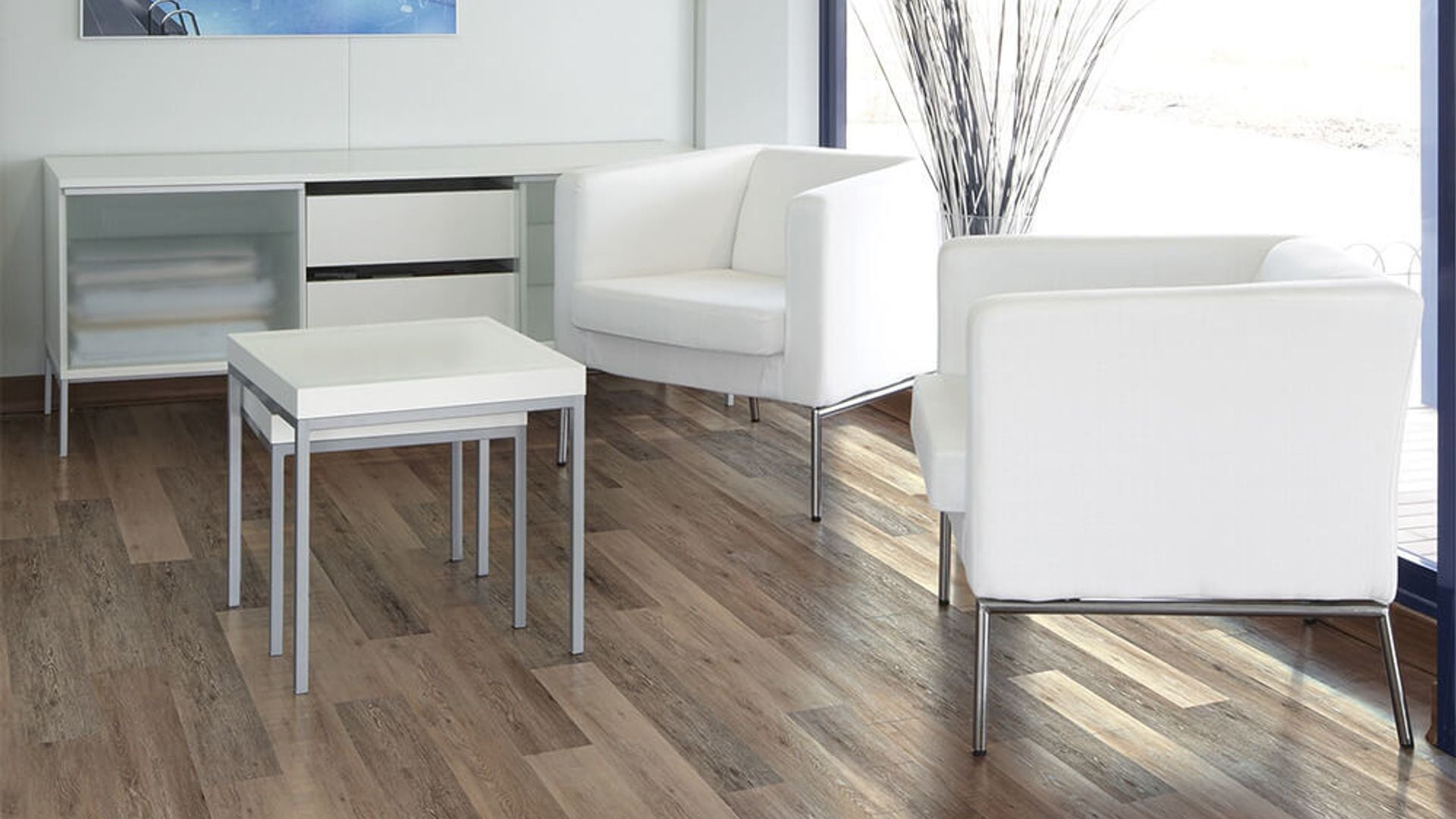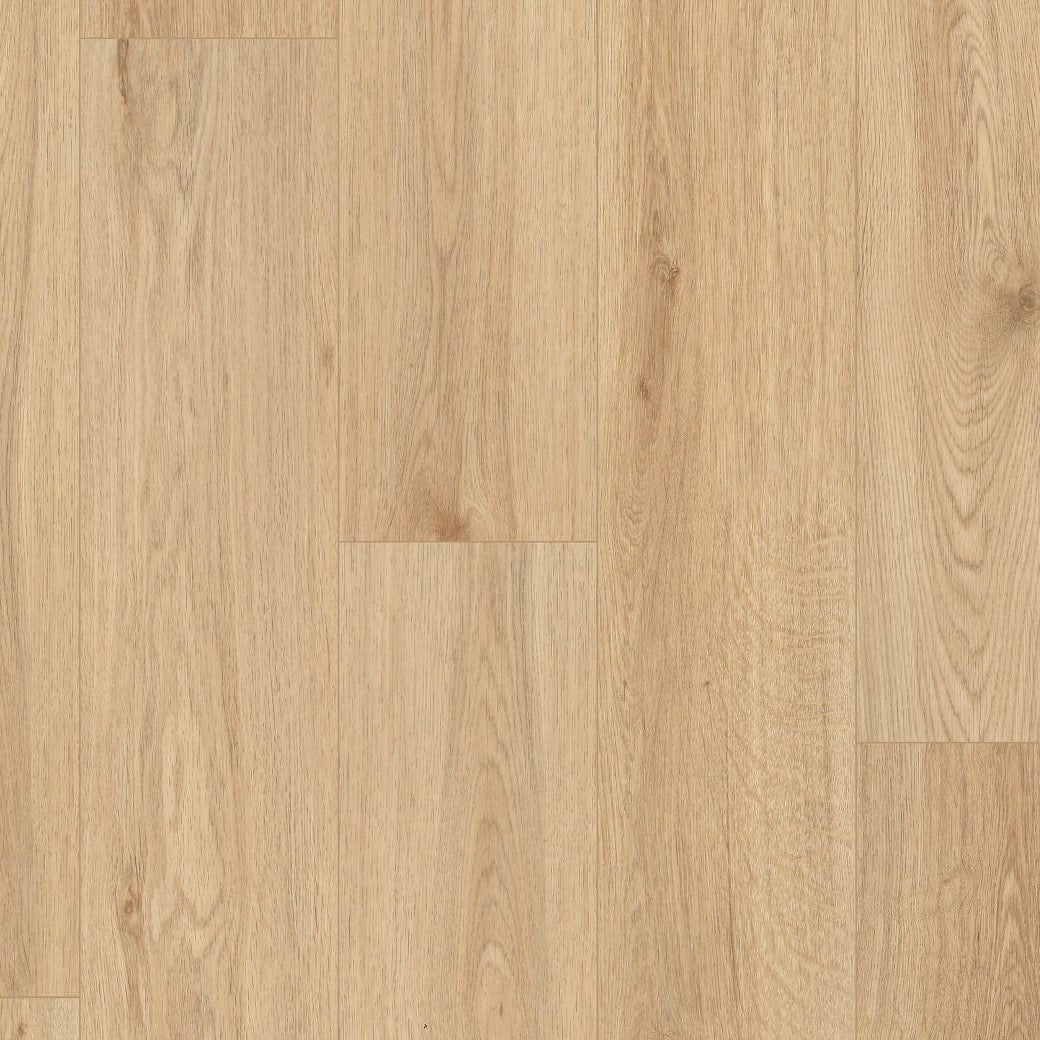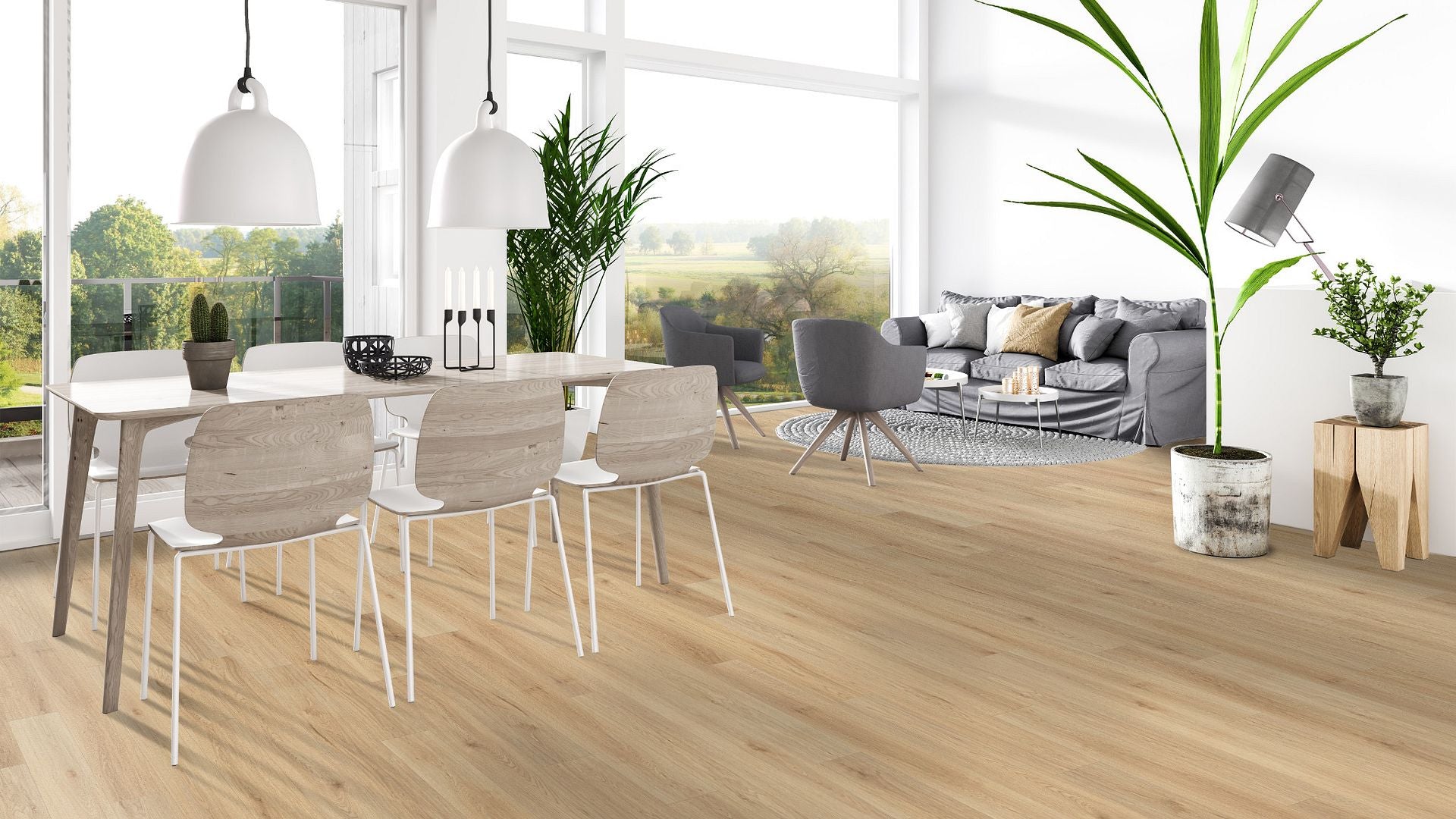Whether you’re a homeowner or a business owner, the quality and style of your flooring play a crucial role in shaping perceptions about your space. Flooring makes up much of the aesthetic you set in your home’s interior design or place of business. For entertaining at home, guests will form an instant first impression about who you are if your floor looks worn. It’s no different with a business where branding is everything and determines customer perceptions.
You’ll want to choose wisely between vinyl and laminate flooring brands. Armstrong is your best choice for various reasons like Diamond 10 Technology and best-in-class warranty. Comparing laminate vs. vinyl flooring will help you make your next flooring purchase.
Pros of Vinyl Flooring

The greatest pro when installing Armstrong vinyl flooring is its ability to convincingly mimic real hardwood. Thanks to new technologies involving printing and photographic techniques, vinyl, whether luxury vinyl planks or sheet vinyl, often fool experts. But don’t take our word for it! Just check out the many Armstrong vinyl flooring reviews available on Armstrong products at Floor City!
When looking for a more rustic theme in your home or business, there isn’t any reason to invest in real hardwood. Considering real hardwood costs thousands of dollars and won’t hold up any more than a few years, a vinyl option, whether sheet vinyl, vinyl tiles, or vinyl planks, is an easy decision.
On top of superior aesthetics, Armstrong vinyl flooring guarantees durability and water and dirt resistance. Armstrong PRYZM vinyl flooring is 100% waterproof, meaning the luxury vinyl planks won’t swell, buckle, or lose integrity over time. Luxury vinyl flooring is also scratch-, stain-, and wear-resistant, perfect for households with kids and pets running across the floor often.
Having the ability to clean your Armstrong LUXE luxury vinyl flooring easily is a plus. Spills wipe up easily, including other liquids that would stain other types of floors. While the pros far outweigh the cons for vinyl flooring, you’ll want to know a few cons to make a more educated buying decision.
Cons of Vinyl Flooring

Since you’re weighing options between vinyl vs. laminate flooring, it pays to look at a few cons of vinyl flooring, whether you’re going for luxury vinyl plank or tile or sheet vinyl. One of the most significant is that vinyl flooring doesn’t have the feel of wood like laminate flooring. Armstrong laminate floors manage to create a texture that helps it feel like real hardwood to the touch, something you may want to make your faux hardwood floors look more convincing.
This all depends on the aesthetic you’re going for in your home or business. In situations where your floor is just viewed from afar, vinyl flooring will still look like real hardwood.
Another con is vinyl flooring is not biodegradable. Also, it might become a little hard to remove the luxury vinyl plank flooring when glued down.
Still, these are minor compared to the longevity this floor is going to provide in all situations. Through Armstrong, you also have lifetime warranties for all their best products, with “best” being a brand name.
Pros of Laminate Flooring

To help you make a more educated decision on what to buy between vinyl and laminate flooring, know the pros of laminate flooring. One thing comparable with vinyl flooring is laminate flooring is also very durable. Much of this is thanks to Armstrong’s patented VisionGuard® technology using a clear, hardened wear layer.
The above layer protects your laminate flooring from scratches, surface spills, stains, and fading. You’ll also find HydraCore™, otherwise known as HydraCore Plus, in the floor’s inner core. Thanks to this technology, you’ll enjoy more stability, durability, and moisture resistance.
As an added bonus, laminate floors have sound absorption, ideal if you often hold loud parties in your home. Your business may have overly loud sounds as well if you use noisy equipment or deal with intense crowds. Having a floor with sound control is going to do much toward making guests and customers feel more comfortable.
Laminate floors from Armstrong also have a balancing layer to protect the floor from warping after experiencing water exposure. Both laminate and vinyl flooring are equally affordable compared to real natural materials. It’s possible to find imitation hardwood, stone, and metal materials with both laminate and vinyl flooring.
Cons to Using Laminate Flooring

Perhaps laminate flooring isn’t your best choice if you’re susceptible to flooding. This type of flooring isn’t quite as waterproof as vinyl flooring. Nevertheless, Armstrong makes theirs very durable as long as you don’t experience excessive water.
To protect from water damage, you can glue down all edges of your laminate floors during installation, including sealing with silicone caulking. Also, keep in mind you can’t refinish laminate flooring like you would with real wood.
With Armstrong, though, you receive reliable warranties for residential or commercial purposes. Having a warranty lasting 20 years or more will help you get your laminate floor replaced when worn out.
Commercial Options

Your next choice should hone in on which is better for a commercial space: vinyl vs. laminate flooring. Vinyl flooring for businesses has numerous advantages. One of the vinyl floors’ most popular features is Diamond 10 Technology, which uses real cultured diamonds. With these properties, your vinyl floors stay looking like new for longer periods. This also helps protect your vinyl flooring against scratches, stains, and scuffing.
Vinyl floors are perfect for most businesses to protect against heavy foot or rolling load traffic. Vinyl flooring can be installed as a floating floor and utilize customized designs, making it ideal for branding purposes.
Likewise, laminate flooring for commercial businesses has many of the same features. Armstrong even has high resistance to fading if you have sunlight shining on your floor all day. You’ll even find underlayments capable of providing an acoustic barrier as a form of sound control. Unique visuals, mixed species, and multiple plank widths are also available.
Residential Options 
With residential options being available for laminate and vinyl flooring, you have equally as many features, sometimes through Armstrong’s internal brand names. It’s not uncommon to see vinyl flooring referred to often as luxury vinyl tiles (LVT). Armstrong refers to this when talking about their residential vinyl flooring products. There are also sheet vinyl and luxury vinyl plank options.
These products make up two different collections: LuxePlank™ and Vivero™ with tile or plank options. Using Luxe Plank, you’ll have a feature called FasTakInstall, making it simpler to install your flooring on your own. Through Luxe Plank, you’ll get traditional, rustic, and exotic wood looks with wide planks six or seven inches long.
Another great option is the offering of natural stone–inspired vinyl tiles and concrete-inspired vinyl planks. For the Vivero brand, you can get a more exotic wood aesthetic with narrower and extra-wide planks available. Vivero manages to blend the look of stone and wood together in the planks or tiles.
Residential laminate flooring from Armstrong gives you various styles, ranging from traditional and rustic to modern. These encompass everything from hardwood looks to stone and custom designs.
One standout for this residential brand is the authentic texture. You can create embossed-in-register to elevate realism by integrating the texture with the design image. It’s possible to create overall textures and hand-scraped textures as well.
Plank widths for this type of laminate floor are also larger, including at least four inches wide. Stone-look tiles are as large as 12–15 inches.
Average Price Per Square Foot

We’ve already shown you how vinyl and laminate flooring are far less costly compared to using real natural materials. Shop at Floor City for Armstrong flooring to get even more discounts!
Normally, Armstrong vinyl flooring costs $2.39 per square foot. Laminate flooring products from Armstrong go for around $2.96 per square foot, a price you won’t commonly find in most big-box stores.
Cost of Installation

When comparing laminate vs. vinyl flooring, installing either floor might not cost anything if you’re a DIY type of person already familiar with these types of products. Not everyone is an expert, though, so we recommend you hire a professional if you don’t know what you’re doing.
For small spaces with no adhesives involved, you could easily install vinyl floors or laminate floors on your own. Many of Armstrong’s products with FasTak allow a peel-and-place self-adhesive for simple installation on your own. Some can even be installed as a floating floor.
While Armstrong provides manuals on installing these floors on your own, we can help find the right suggestions here at Floor City.
Warranty

As we mentioned, Armstrong’s warranties are better than what you’ll typically find through box stores or other flooring companies. Remember that warranties will differ slightly, depending on if you buy your floor for your business or home. Most vinyl flooring products at Armstrong have 15-year warranties for commercial and lifetime warranties for residential.
For laminate flooring, it’s somewhat the same, though some products have 10-year commercial warranties. This is still useful because your laminate flooring would generally need maintenance by a decade, proving its longevity.
Glueless vs. Glue-Down

The choice you make using a glueless or a glue-down method determines the ease of installation. You may want a glue-down method for your vinyl flooring if your space experiences heavy floor traffic. Having the glue underneath will help the flooring hold more firmly in place compared to glueless.
Not having to bother with an adhesive makes it easier to install the floor on your own. Ultimately, using a glueless method is best for floors that only have minimal floor traffic every day. With laminate flooring from Armstrong, you’ll be able to enjoy Lock&Fold® technology, where you simply insert the long end of one plank into another then fold into place. Laminate flooring is your best bet for installation simplicity.
Do-it-Yourself or Hire an Installer?

Armstrong stands out because they make it so easy to install most of their flooring products on your own. To decide whether you should DIY or hire an installer, you’ll have to determine things like the size of the project and the materials used.
For a business, you may have to install flooring over a wide area, perhaps requiring a professional install. It’s no different for a large home if you’re doing a complete reflooring project or installing a floor in a new home.
One thing you’ll discover is Armstrong makes it the easiest of any flooring brand to install vinyl plank flooring or laminate flooring by yourself. When installing these floors in one or two rooms, you shouldn’t have any trouble installing it DIY.
Cleaning or Vacuuming

Cleaning your vinyl floors is just as simple without it being a burden. Armstrong offers tips on how to go about it in the right way to avoid any damage. Sweeping and vacuuming are fine as long as you don’t use your vacuum’s beater bar. Never use any detergents or abrasive cleaners since they leave a dull film on the floor’s surface.
Did you know Armstrong also offers their own floor-cleaning products? They offer Once ’n Done® Floor Cleaner as well as New Beginning® Floor Stripper. On your laminate floor, it’s best to use a microfiber or terry cloth mop or use one of Armstrong’s own floor cleaners for the best results.
Like with vinyl flooring, sweeping and vacuuming are okay for laminate flooring, as long as the vacuum used isn’t too harsh.
Pick Up Your Flooring Today!

At Floor City, we’re here to help educate you on the best possible flooring choices for your home or business. Part of our commitment involves informing you about different flooring options, including the differences and similarities between laminate vs. vinyl flooring. We make it easy to order and pick up your flooring at the nearest local location.


